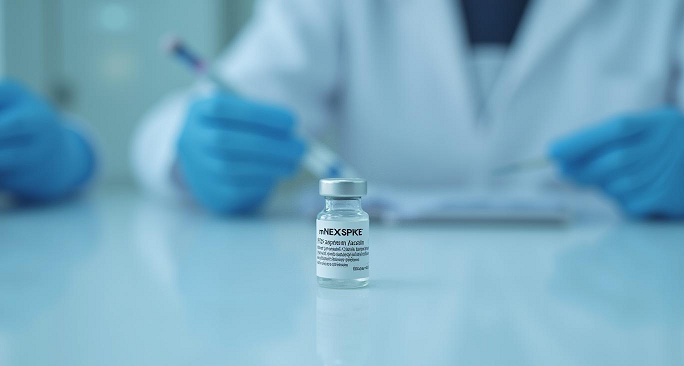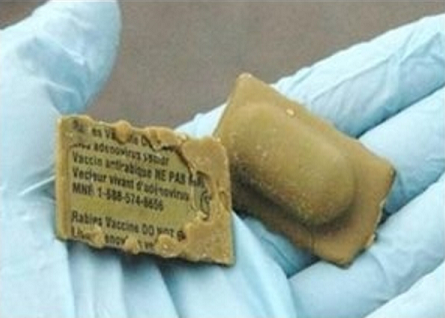The U.S. Food and Drug Administration (FDA) has licensed Sanofi’ SA’s four-valent MenQuadfi meningococcal vaccine for use in infants aged six weeks to 23 months old to prevent invasive meningococcal disease. Previously approved for children aged two and older, MenQuadfi is now the first meningococcal vaccine included on the U.S. Centers for Disease Control and Prevention’s (CDC) vaccination schedule for children as young as six weeks old.1
MedQuadfi is also the first quadrivalent meningococcal vaccine available in the US that uses tetanus toxoid as a protein carrier.2
MenQuadfi is a four-dose series vaccine that targets four major serogroups of the bacterium Neisseria meningitidis—A, C, W, and Y—which are asymptomatically colonized by most infants and children, who develop immunity. It is estimated that up to 10 percent of healthy individuals in a population are colonizing Neisseria meningitidis at any given time without showing clinical symptoms.3
However, individuals with certain genetic, biological or environmental risk factors can develop invasive meningococcal disease, a rare but potentially life-threatening bacterial infection spread through respiratory droplets and close contact with a person actively colonizing Neisseiria meningitidis.4 In vulnerable individuals, the infection can lead to meningitis (inflammation of the membranes surrounding the brain and spinal cord); bloodstream infections (sepsis), limb loss, and death. Invasive meningococcal infection has a fatality rate of 10–15 percent and some survivors can suffer lifelong complications, including neurological damage or amputations.1
MenQuadfi is the only licensed meningococcal vaccine in the United States using a tetanus toxoid—a tetanus-derived protein—as a carrier to stimulate the immune response. It is also the only FDA-approved quadrivalent meningococcal vaccine authorized for use by individuals between the ages of two and 56.5
The FDA’s approval of the vaccine was based on data from three late-stage studies involving over 6,000 participants aged six weeks to 19 months, which showed that MenQuadfi was comparable in effectiveness to MENVEO, another meningococcal conjugate vaccine manufactured by GlaxoSmithKline and licensed in 2010, when administered alongside other routine pediatric vaccines.1
MenQuadfi Not Tested Against Inert Placebo in Clinical Trials
The announcement of the MenQuadfi approval on May 27, 2025 comes just weeks after the Department of Health and Human Services (DHHS) stated that all new vaccines will be required to undergo placebo-controlled clinical trials to prove safety. According to the package insert, MenQuadfi was not tested against a true inert placebo, but rather tested against other meningococcal vaccines—including MENVEO, MENACTRA, and MENOMUNE.6 7
Earlier this year, British pharmaceutical company GSK plc announced that the FDA approved its 5-in-1 meningococcal vaccine, PENMENVY—which combines two of its existing meningococcal vaccines, BEXSERO and MENVEO—into a single formulation for use in individuals aged 10 through 25 years old, further expanding the number of licensed meningococcal vaccines on the U.S. market.8
MenQuadfi Trial “Placebo” Was a Vaccine With Documented Adverse Events
MENVEO, the control comparator used in several MenQuadfi trials, also reported adverse events during clinical testing, making it difficult to determine whether observed reactions were specific to MenQuadfi or common to both vaccines. According to the MENVEO package insert, serious adverse events, though rare, occurred in both the MENVEO and placebo groups. There were also reports of hospitalizations and medically attended events, particularly among infants and toddlers, which indicates a health issue occurred after vaccination that required medical care.9
MENVEO was not tested against an inert (saline) placebo being licensed by the FDA in 2010.10 In adolescent trials, Menactra—another meningococcal conjugate vaccine licensed in 2005—was used as the control comparator.11 In infant clinical trials, MENVEO was co-administered with routine pediatric vaccines, but no biologically inactive placebo was used in the pre-licensure trials. Without a true inert placebo control group, it is not possible to fully assess the baseline safety profile of a new vaccine. This limitation complicates the interpretation of adverse event data, since both products being compared may share overlapping risk profiles.9
Like GSK’s newly licensed PENMENVY meningococcal vaccine, clinical trials of MenQuadfi reported serious adverse reactions that included high fever, severe vomiting, and febrile seizures. Reported post-marketing adverse events included Guillain-Barré syndrome, convulsions, syncope, and anaphylaxis. According to the package insert, two cases of febrile seizure were reported following the fourth MenQuadfi dose when co-administered with MMR, varicella, and PCV13 vaccines at 12 months. Serious adverse events (SAEs) were tracked for only up to six months following vaccination in most studies.7
Meningococcal Disease Infections on the Rise Despite High Vaccination Rates
According to the CDC, U.S. cases of invasive meningococcal disease have risen sharply since 2021, surpassing pre-pandemic levels. Preliminary data shows 503 confirmed and probable invasive meningococcal cases in 2024—the highest annual total reported since 2013. This marks a shift from a 2019 study published in Open Forum Infectious Diseases which found that the frequency of invasive meningococcal disease had declined significantly since 1977.8 12
Among the reasons trends are changing are growing antibiotic resistance, the emergence of hypervirulent Neisseria meningitidis strains like sequence type 1466 of serogroup Y, and shifting demographic patterns. There is an increased incidence among adults aged 30 to 60 years old, Black populations, and people living with HIV, who have been disproportionately affected in recent outbreaks.13
In March, a University of Virginia student was hospitalized with, and later died from an invasive, meningococcal B infection. The student’s vaccination status was not disclosed; however, UVA, like most U.S. universities, maintains strict vaccine policies, requiring all incoming students under age 22 to receive the MenACWY vaccine and strongly recommending the MenB vaccine. According to the CDC, nearly 90 percent of American adolescents have received at least one dose of a meningococcal vaccine.14 15 16
The CDC website states that “the vaccines that help protect against meningococcal disease work well, but cannot prevent all cases.” According to health officials, preventive measures that can significantly reduce the risk of invasive meningococcal infection include practicing good hygiene, washing hands frequently—especially before eating or touching the face—avoiding the sharing of drinks, utensils, or other items that come into contact with the mouth, and covering the mouth and nose when coughing or sneezing.12
If you would like to receive an e-mail notice of the most recent articles published in The Vaccine Reaction each week, click here.
Click here to view References:1 Sunny M et al. US FDA approves use of Sanofi’s meningococcal vaccine in infants. Reuters May 27, 2025.
2 Ferruggia K. Quadrivalent Meningococcal Vaccine Receives FDA Approval for Infants and Children with Meningococcal Disease. Pharmacy Times May 28, 2025
3 Rausch-Phung EA, Hall WA, Ashong D. Meningococcal Disease (Neisseria meningitidis Infection. StatPearls June 2, 2025.
4 Hodeib S, Herberg JA et al. Human genetics of meningococcal infections. Hum Genet 2020; 139(6): 961-980.
5 Ferruggia K. Quadrivalent Meningococcal Vaccine Receives FDA Approval for Infants and Children With Meningococcal Disease. Pharmacy Times May 28, 2025.
6 Fisher BL, Baker A. ‘All New Vaccines’ in the U.S. to Undergo Placebo-Controlled Safety Testing. The Vaccine Reaction May 19 2025.
7 Sanofi Pasteur. MenQuadfi (meningococcal [groups A, C, W, Y] conjugate vaccine) injection, solution, for intramuscular use: Prescribing information. U.S. Food and Drug Administration.
8 Parpia R. FDA Approves GSK’s 5-in-1 Meningococcal Vaccine. The Vaccine Reaction Feb. 24, 2025.
9 GlaxoSmithKline. MENVEO [Meningococcal (Groups A, C, Y, and W-135) Oligosaccharide Diphtheria CRM197 Conjugate Vaccine] solution for injection, for intramuscular use: Prescribing information. U.S. Food and Drug Administration.
10 Drugs.com. Menveo FDA Approval History.
11 Drugs.com. Menactra FDA Approval History.
12 U.S. Centers for Disease Control and Prevention. Meningococcal vaccination. U.S. Department of Health and Human Services.
13 CDC. (2024, March 28). Increase in invasive serogroup Y meningococcal disease in the United States (CDCHAN-00505). U.S. Department of Health and Human Services.
14 Piermarini, J et al. UVA First-Year Student Dies from Meningitis. Cville Right Now Mar. 8, 2025.
15 University of Virginia Student Health and Wellness. Pre-entrance health requirements. June 4, 2025.
16 CDC. National vaccination coverage among adolescents aged 13–17 years — National Immunization Survey-Teen, United States, 2023. Morbidity and Mortality Weekly Report 73(33): 708–714.











